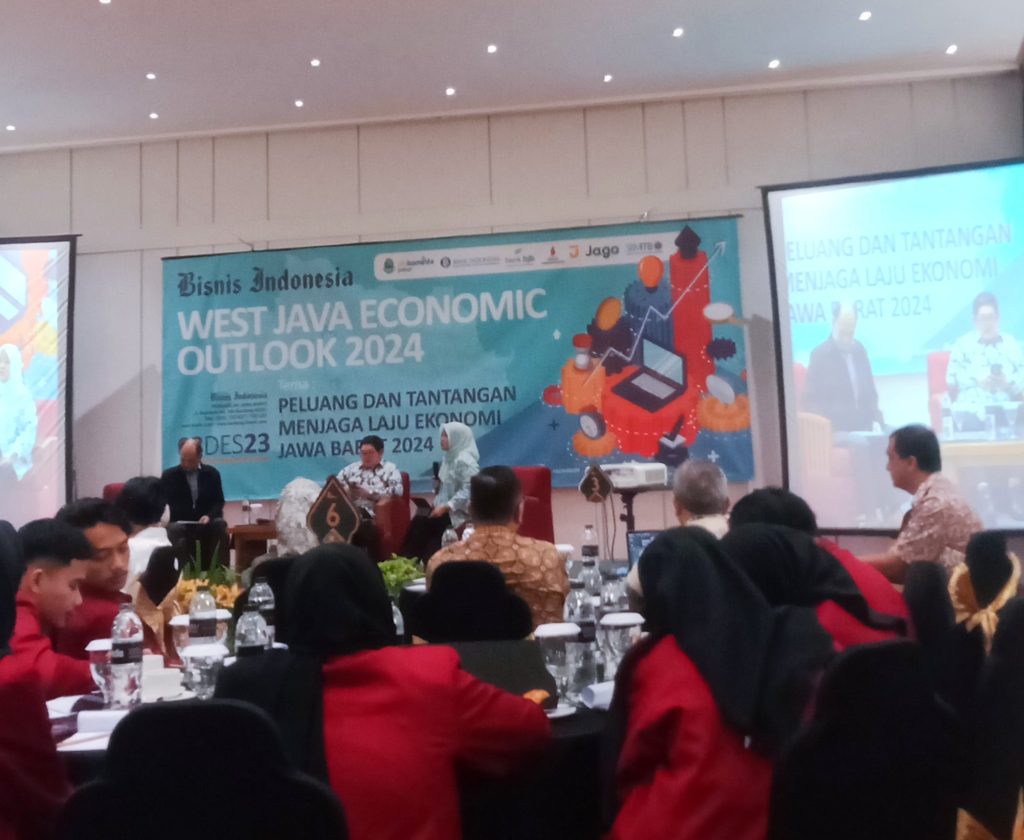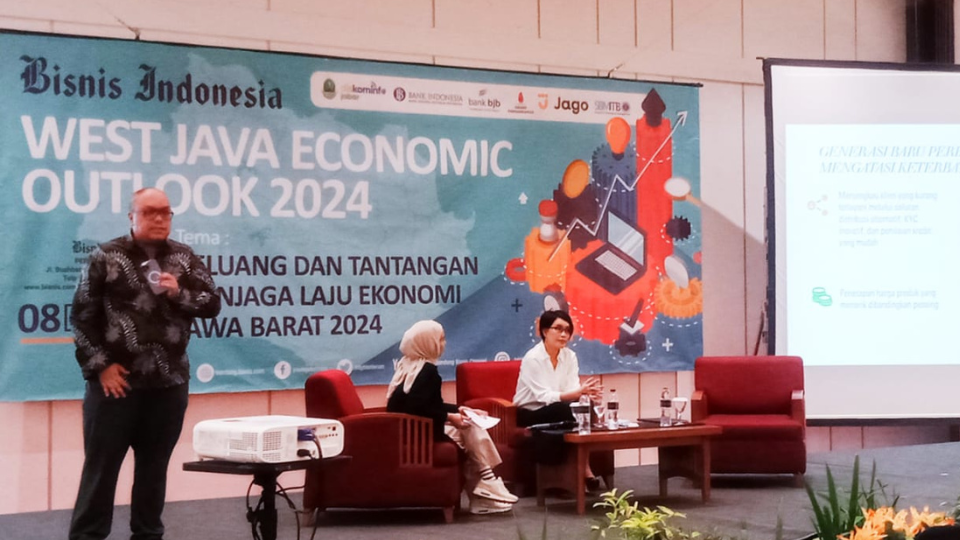Sustaining the momentum of economic growth and investment in West Java requires a strategic approach to ensure the smooth functioning of trade processes. While investment realization in West Java remains high, it is not accompanied by a proportional increase in labor absorption, posing a challenge. Thus, there is a need for an enhanced focus on domestic consumption, human resource quality, information technology implementation, and business sustainability.
These insights were shared during a “West Java Economy Outlook 2024” seminar organized by the Bisnis Indonesia Daily at the Savoy Homann Hotel in Bandung on Friday (8/12). The seminar featured speakers such as the Head of Bank Indonesia West Java Province Representative, Erwin Hutapea, the Head of West Java Industry and Trade Service, Noneng Komara Nengsih, the Head of West Java APINDO, Ning Wahyu Astutik, and Raden Aswin Rahadi, a Lecturer at the SBM ITB.
Raden Aswin emphasized that the recent pace of West Java’s economy is a consequence of the widespread digitalization of banking and finance. The COVID-19 pandemic has accelerated the penetration of digitalization in the financial industry, aided by government support. Consequently, digitalization has led to increased lending, quicker credit assessments through digital technology, and widespread use of digital banking services among those connected to the banking sector.
However, Raden Aswin underscored existing challenges in financial digitalization in Indonesia, particularly in remote areas. Many individuals in these areas are not accustomed to using smartphones and digital devices, and the internet network is not well-connected. Addressing these challenges requires parallel development in internet networks and infrastructure. Raden Aswin believes that SBM ITB students can play a pivotal role as agents of change by actively participating in community service programs to develop digitalization initiatives.





